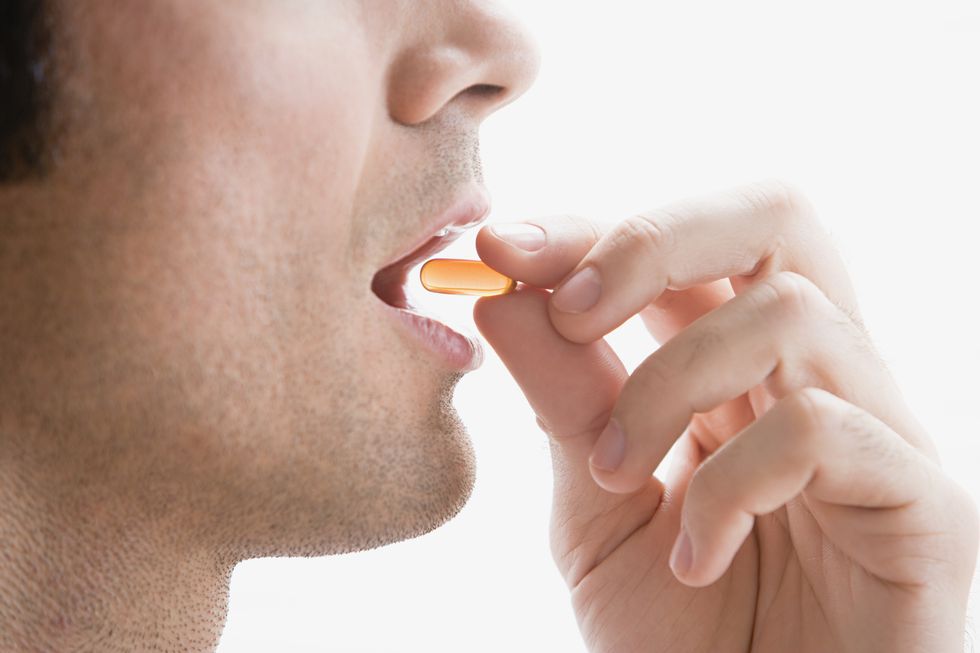Learn about brain health and nootropics to boost brain function
What Are Nootropics? The Internet Is Buzzing About These Controversial Smart Drugs

Humans are always trying to be bigger, better, and faster. In our latest attempt at self-improvement, people are turning to nootropics, or substances aimed at boosting mental performance.
You've likely seen these supplements in the health aisle or in pop-up ads promising to improve memory or focus. And you can expect to see a lot more of these claims. By 2024, Americans are expected to drop $11.6 billion on brain health supplements, reported Markets Insider. That's up from $2.3 billion in 2015.
But do any of these brain enhancers actually work? Or could all that money be used more wisely? Here's a breakdown on what nootropics are, whether they work, and what you can do to boost your brain health.

Getty ImagesEugen Wais / EyeEm
What are nootropics?
Sometimes called smart drugs, brain boosters, or memory-enhancing drugs, the term "nootropics" was coined by scientist Dr. Corneliu E. Giurgea, who developed the compound piracetam as a brain enhancer, according to The Atlantic. The word is derived from the Greek noo, meaning mind, and trope, which means "change" in French. In essence, all nootropics aim to change your mind by enhancing functions like memory or attention.
Nootropics ostensibly work by protecting neurons in your brain from becoming damaged by toxins and aging. The theory is that they stimulate neurons and increase blood and oxygen flow to your brain, which supposedly leads to improvements in your attention span and other areas of cognitive functioning.
Board-certified neuropsychologist Brian Lebowitz, PhD and associate clinical professor of neurology at Stony Brook University, explains to MensHealth.com that the term "encompasses so many things," including prescription medications. Brain enhancers fall into two different categories: naturally occurring substances like Ginkgo biloba, creatine and phenibut; and manmade prescription drugs, like Adderall, and over-the-counter supplements such as Noopept.
Brain hackers gather on the Nootropics reddit to ask questions, share the latest research (a recent post shares a study concluding that walnuts keep brains young) and product reviews.
What are some of the most popular nootropics?
A short list of popular nootropics includes:
Food
Caffeine
Bulletproof coffee
Turmeric
Red Reishi mushrooms
Supplements
Piracetam
Creatine
Adrafinil
Phenibut
Noopept
Phenylpiracetam
Prescription medications
Adderall
Ritalin
Concerta

Getty ImagesYagi Studio
Do nootropics work?
According to Lebowitz, caffeine and prescription medications like Adderall are the only nootropics that are scientifically proven to improve cognitive ability.
He explains caffeine works by improving your attention span, which helps you retain information when you're not fatigued. Medications like Adderall can help you control your attention span by increasing the amount of neurotransmitters in your brain, which help neurons communicate.
Lebowitz says that if you're purchasing supplements to improve your brain power, you're probably wasting your money. "There is nothing you can buy at your local health food store that will improve your thinking skills," Lebowitz says. So that turmeric latte you've been drinking everyday has no additional brain benefits compared to a regular cup of java.
He adds that if nootropics were proven to enhance mental performance, "you would see a stampede of pharmaceutical companies developing these things into well controlled products where you know dosing, the effects, and how to use them."
What are the risks of taking nootropics?
It's been widely reported that Silicon Valley entrepreneurs and college students turn to Adderall (without a prescription) to work late through the night. In fact, a 2012 study published in the Journal of American College Health, showed that roughly two-thirds of undergraduate students were offered prescription stimulants for non-medical purposes by senior year.
Although they may help users focus, Lebowitz says taking prescription drugs can be dangerous without a doctor's supervision.
"We know that these medications are very powerful," Lebowitz warns.
In high doses, they could cause cardiac issues, high blood pressure, anxiety and psychosis, he says.
Even caffeine can cause some alarming side effects, like anxiety, hallucinations and dizziness. "And that's something we know a lot about," Lebowitz says.
Other naturally occurring and lab-created nootropics have little research supporting their use or side effects. Existing studies are often small and poorly executed.
"The common problem is that these studies are done without a control group," he says. This means there is no way of knowing whether the substances worked, or if study participants simply believed they experienced positive effects (a term known as the "placebo effect").
How can you enhance mental performance?
Lebowitz says your best bet is to focus on the basics of improving your overall health, because our brains suffer if our bodies aren't in good shape.
If you want to focus on boosting your brain power, Lebowitz says you should primarily focus on improving your cardiovascular health, which is "the key to good thinking." For example, high blood pressure and cholesterol, which raise the risk of heart disease, can cause arteries to harden, which can decrease blood flow to the brain. The brain relies on blood to function normally.
"Everything that's good for your heart is good for the brain," Lebowitz claims.
He says your best bet is to eat heart-healthy foods, like those found in the MIND diet. Created by researchers at Rush University, MIND combines the Mediterranean and DASH eating plans, which have been shown to reduce the risk of heart problems. Fish, nuts, berries, green leafy vegetables and whole grains are MIND diet staples. Lebowitz says these foods likely improve your cognitive health by keeping your heart healthy.
Exercise is also important, says Lebowitz. Studies have shown it sharpens focus, elevates your mood and improves concentration. Likewise, maintaining a healthy social life and getting enough sleep are vital, too. Studies have consistently shown that regularly skipping out on the recommended eight hours can drastically impair critical thinking skills and attention.
Bottom line: Coffee can be used to make you more alert, but "there's nothing out there that makes any sense for people to put their money into," Lebowitz says.
Watch Next
Video Player is loading.
Current Time 0:00
/
Duration 0:00
Loaded: 0%
Progress: 0%
Stream Type LIVE
Remaining Time -0:00
1x
- Chapters
- descriptions off, selected
- captions and subtitles off, selected
This is a modal window.
Beginning of dialog window. Escape will cancel and close the window.
TextColorWhiteTransparencyOpaqueBackgroundColorBlackTransparencyOpaqueWindowColorBlackTransparencyTransparent
Font Size50%Text Edge StyleNoneFont FamilyProportional Sans-Serif
End of dialog window.
Advertisement
Click here to view full article